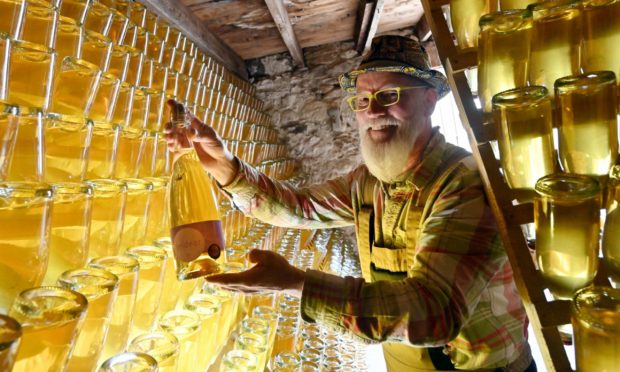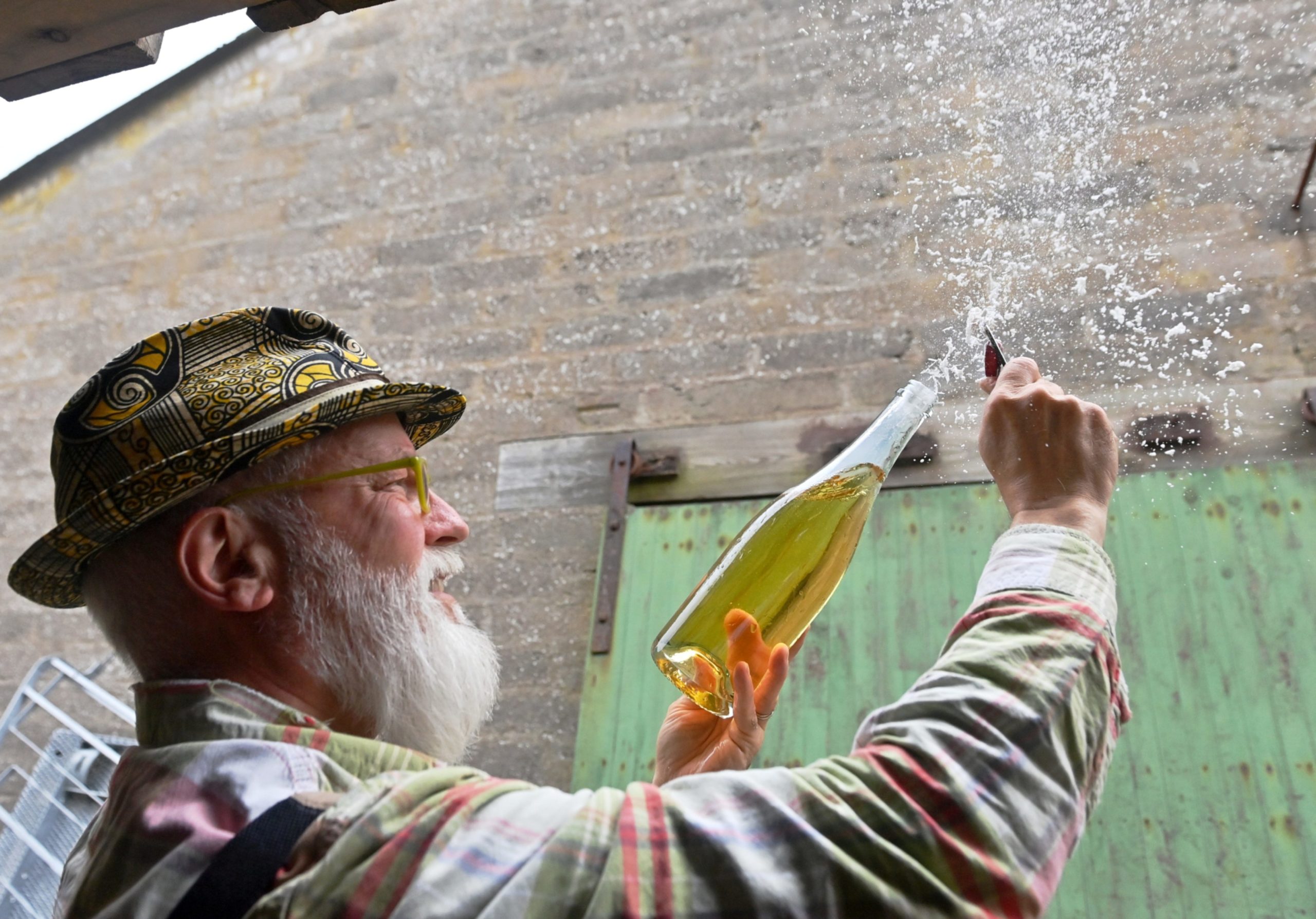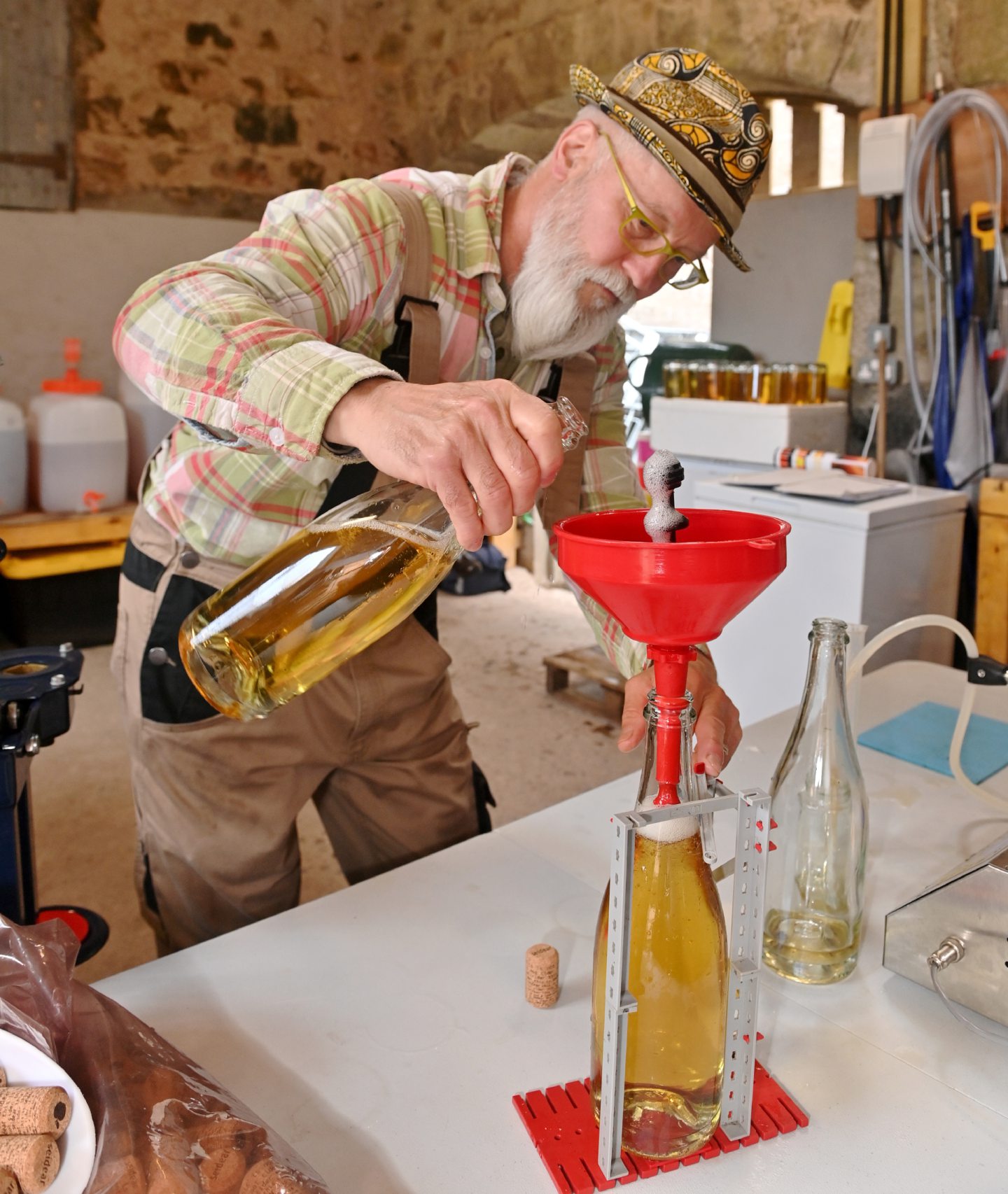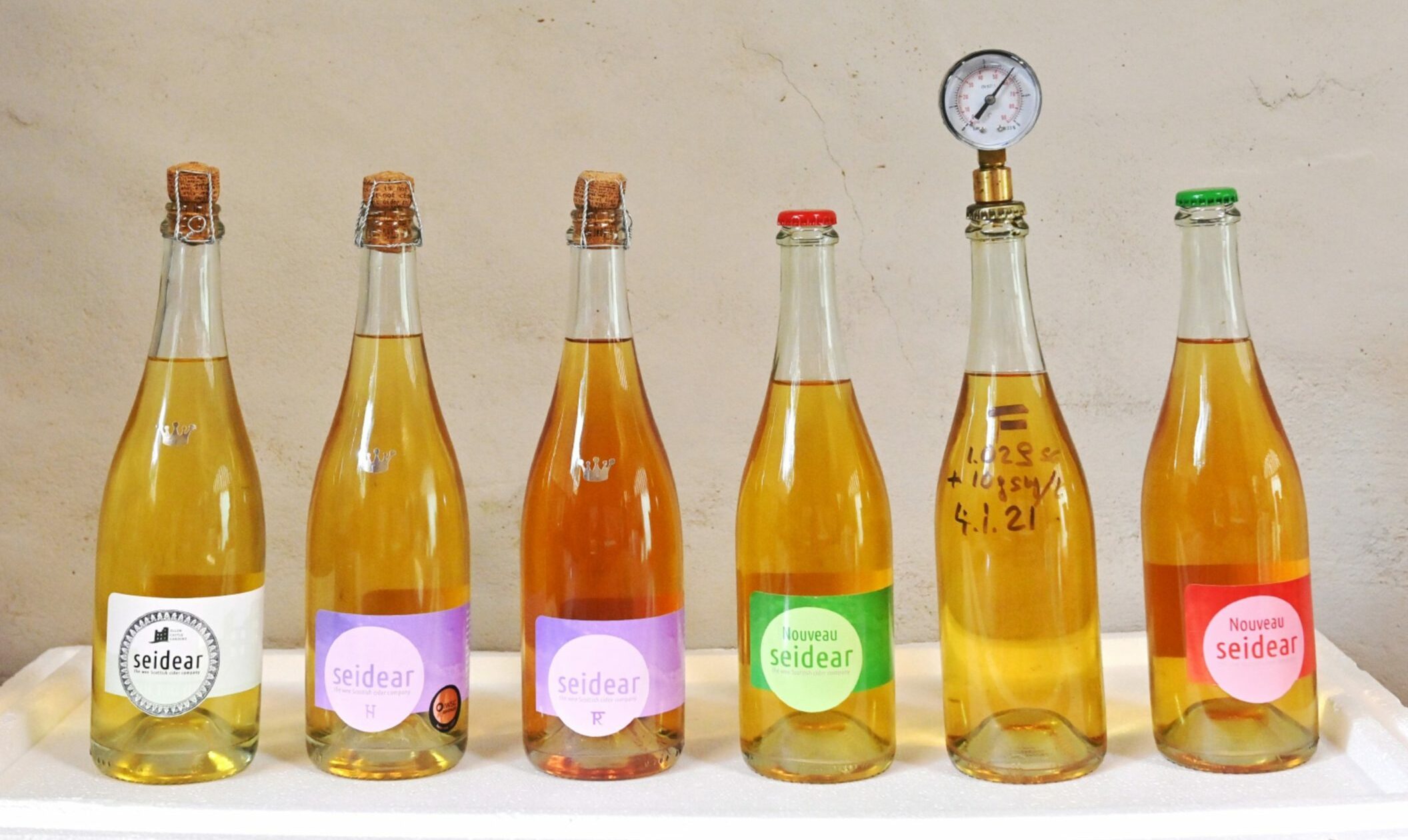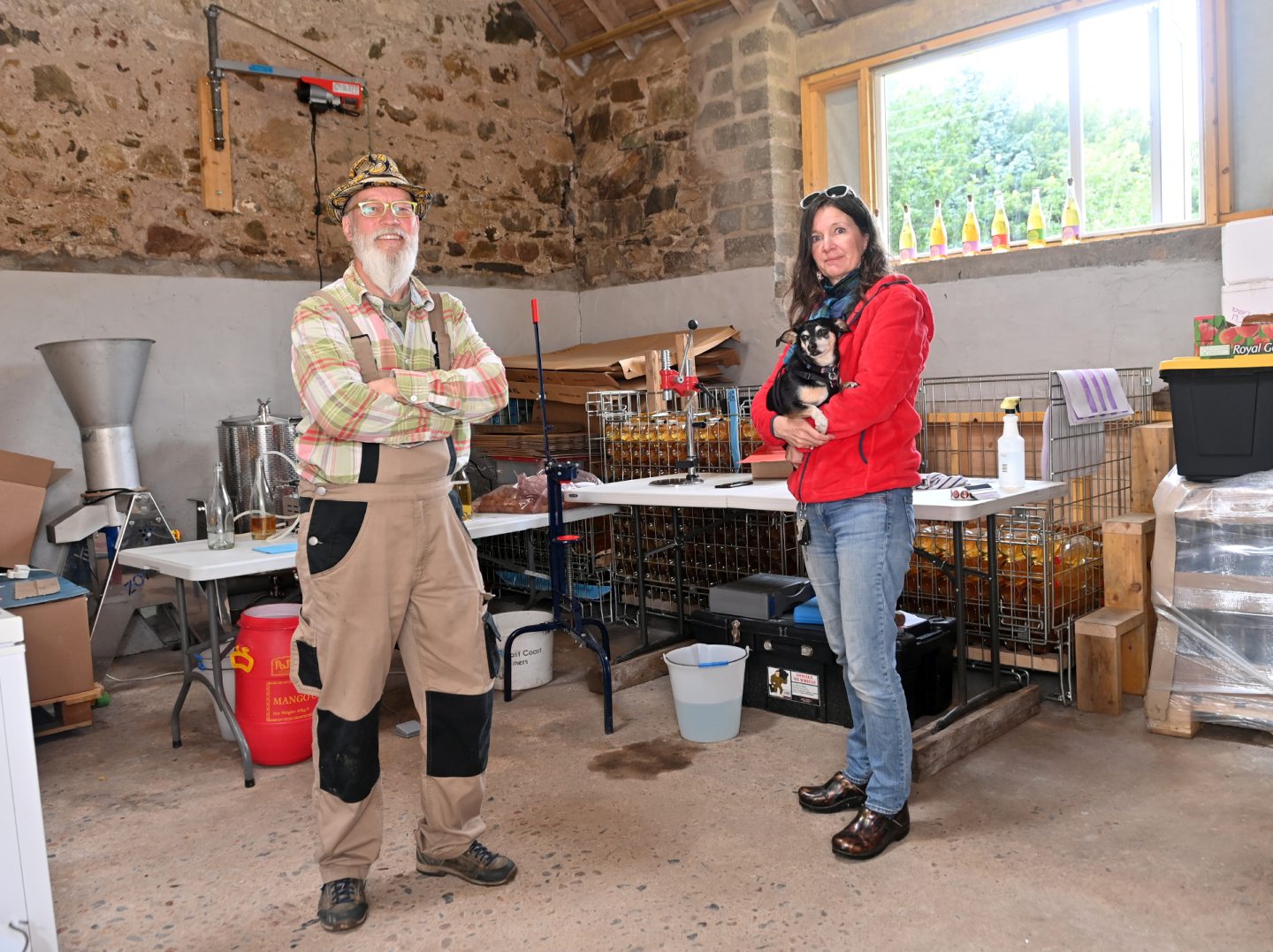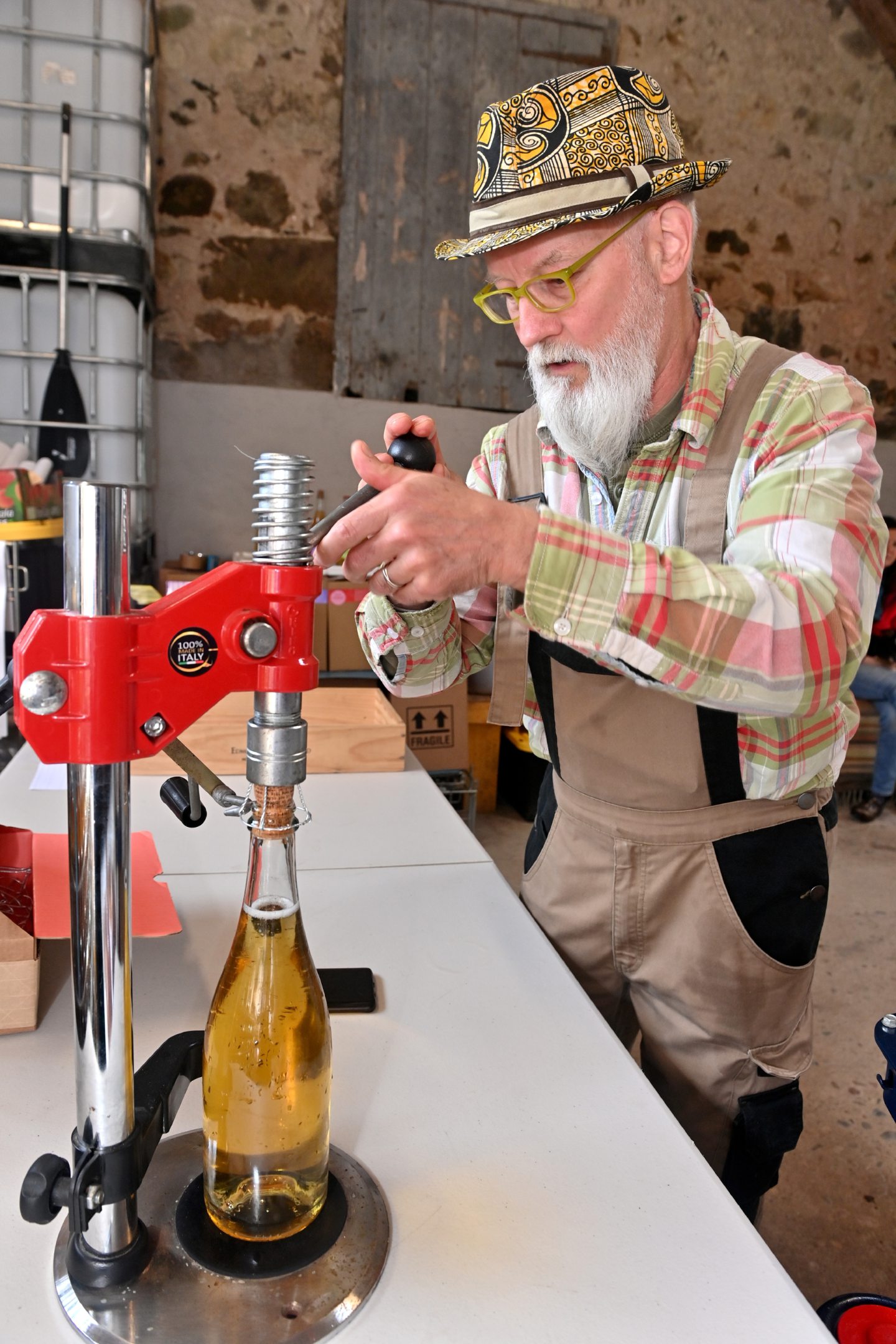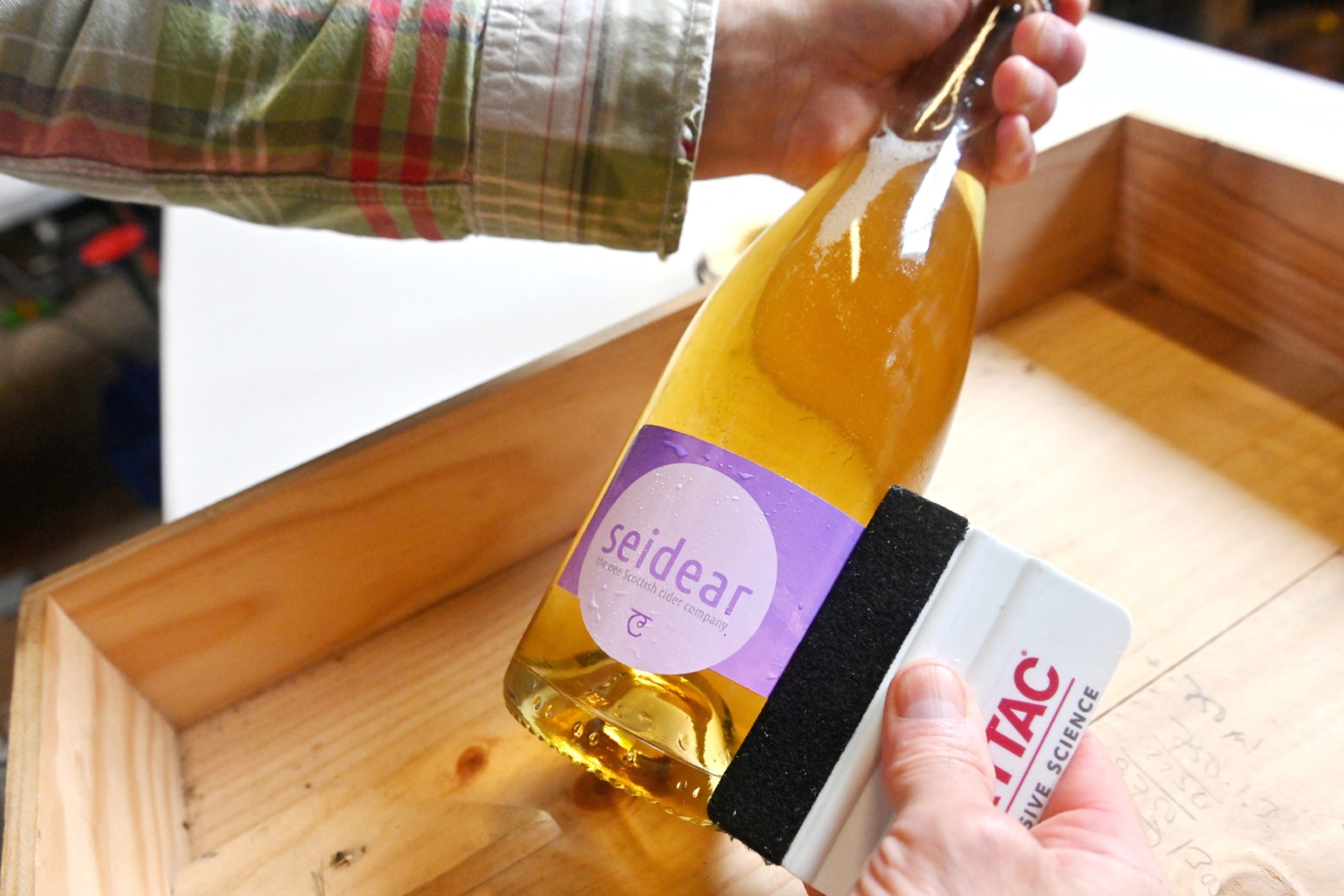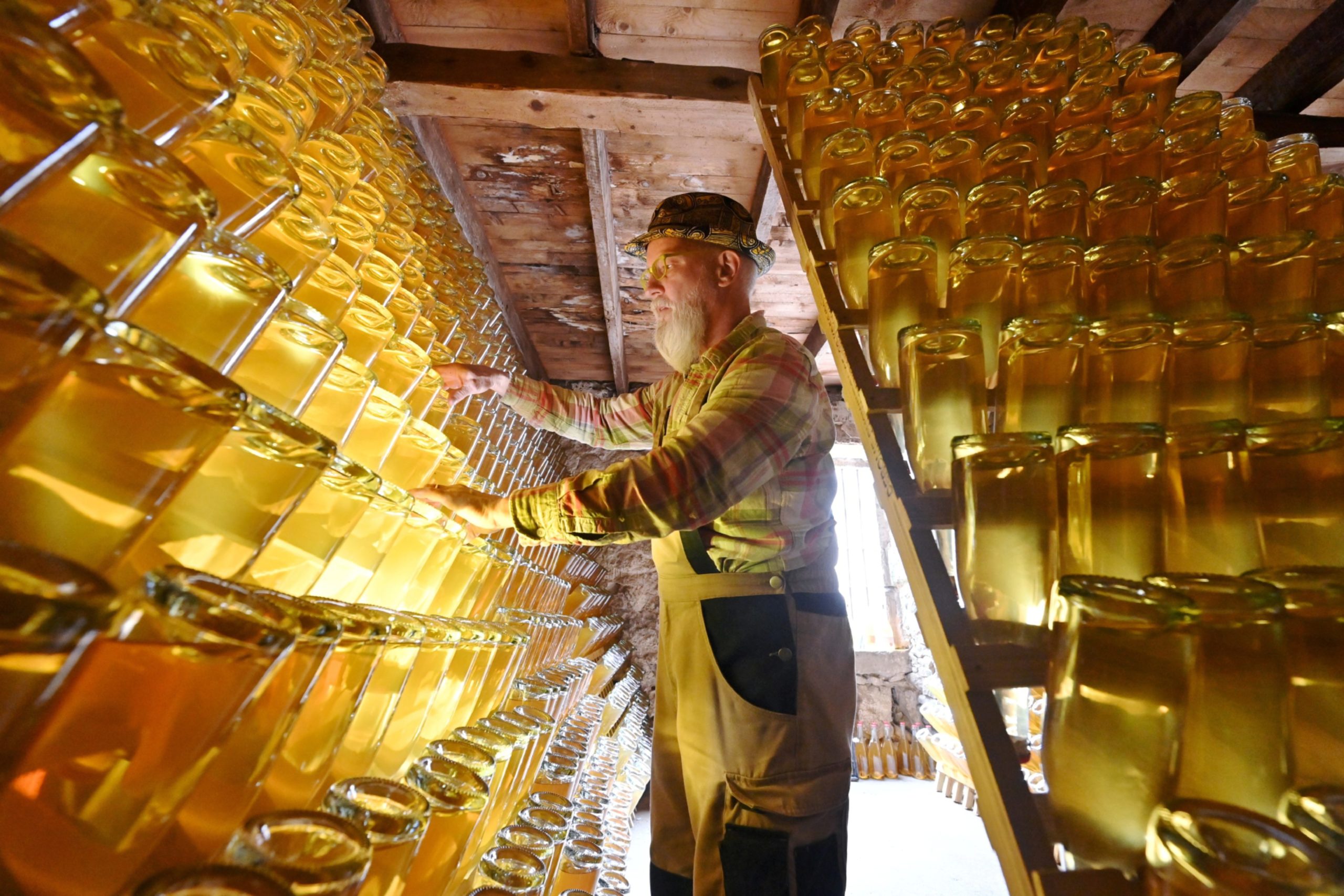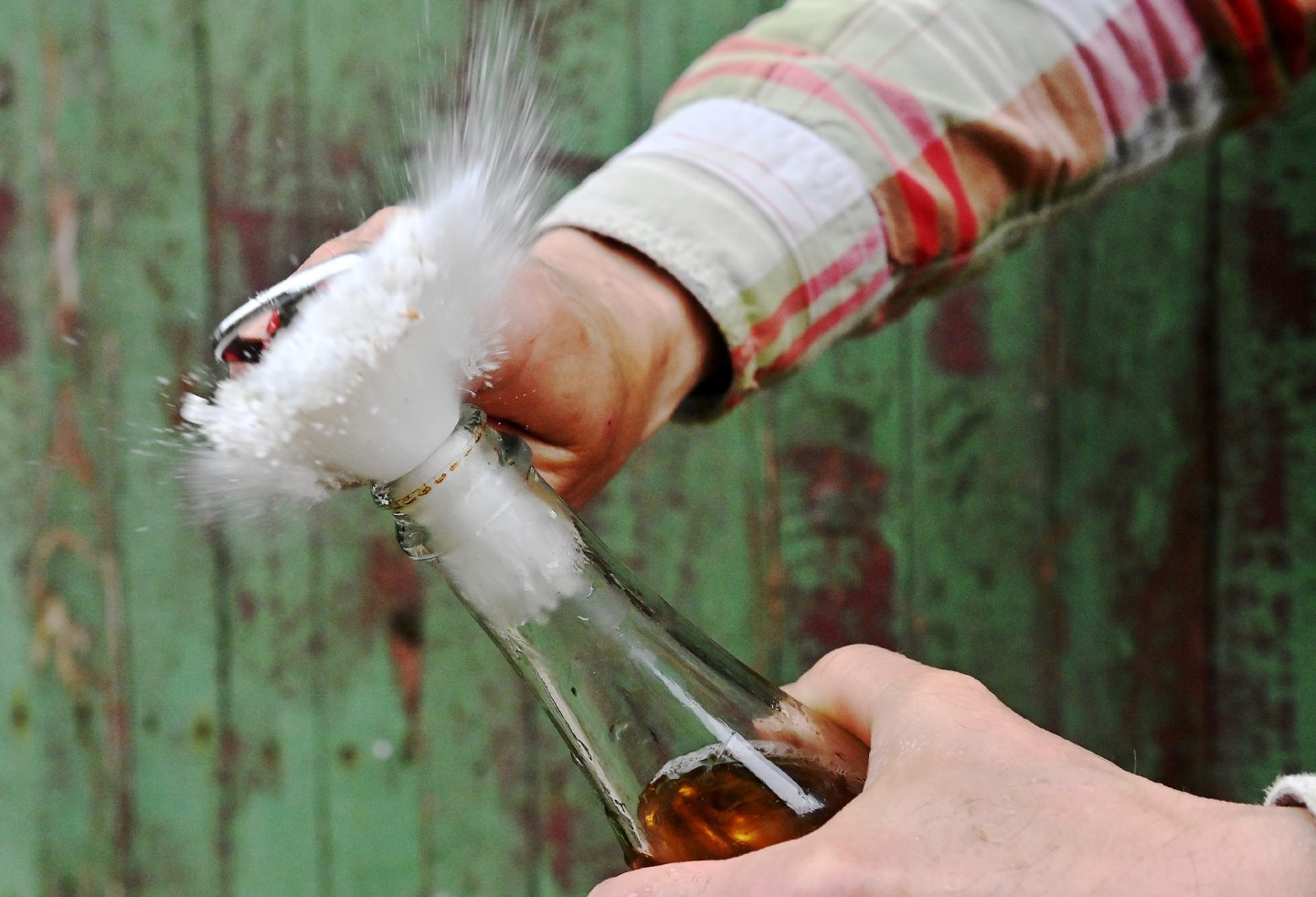A new cidery, which is hidden in a steading near Maryculter, has launched its first cider after waiting a year for the product to be ready to release.
Cults man Christian Stolte has used apples from local estates and walled gardens to create around 3,500 bottles of his new product.
Using fruit from Ellon Castle, Gordon Castle, Cluny Castle and other venues, every bottle is labelled according to the apples used in them, giving Christian a variety of different ciders from different estates.
Although he established The Wee Scottish Cider Company two years ago, his cider, Seidear, has been a decade in the making after Christian fell in love with producing cider when he was living in Aberdeen.
Love of apples
The former oil and gas worker has lived in various countries and when he found himself back in Aberdeen three years ago, he decided to pick up where he had left off.
He said: “When I moved to Cults 10 years ago there were a few apple trees in our garden. The year after I pruned them there was a shower of apples.
“My son and I built a press with a few pieces of wood and a car jack. We did apple pressing with the boy scouts and then I decided to make cider with it.
“I refined it over the years and I moved back to Aberdeen three years ago. I had given my press to a friend and he had actually planted an Orchard at Cluny Castle. We pressed the apples and started to sell it.”
“Proper” cider
Using the same method that is used to make Champagne, Christian’s small-batch cider is to be enjoyed like a fine wine and unlike many big firms, Christian does not dilute his cider with water and instead only uses freshly pressed apple juice.
He added: “The minimum juice content required by law in the UK for cider is 35%.
“Chances are you had a drink with 65% added water, made in 10 days, probably from apple concentrate and many other ingredients. Then sugar was added, as well as acid, colour and apple flavour.
“Seidear is 100% freshly pressed apples, often using old apple varieties, like the Scottish Bloody Plowman or the Cat’s Head – one of the oldest apple varieties grown at Castle Fraser.
“My cider is low in alcohol at around 7% ABV and should be enjoyed like a wine, having a couple glasses and pairing with a meal, rather than guzzling a smaller bottle.”
How it is made
Christian’s cider is keeved (an ancient method used in Normand, France to naturally clarify the cider and lock in the flavour) and takes around a year to make.
It requires fermentation in the bottle and has to be turned once a day for a whole month, exactly the same as Champagne would.
The flavour is rounded through fermentation in the bottle using Méthode Champenoise – a practice that is done by no other cider maker in the UK.
“The apples are shredded and sit for a few days and turn brown due to oxidisation. Then we press them and juice them. It is transferred to a big tank and when it starts to ferment the sediment on the bottom starts to form a jello dish.
Watch Christian make his cider
“After about 10 to 14 days the bubbles go crazy the disk moves to the top of the container and the juice below is tapped and that is the first part of the cider making.
“We then put it in bottles with a little sugar and Champagne yeast. You leave them for around half a year on their side. After that we then put them into my homemade bottle holder at an angle. I have to turn them around a quarter every day a quarter for a month.”
“Last year I processed around five or six tonnes of apples. I made 3,500 bottles which are 750ml. I do everything by hand – I don’t have a bottling line or anything!”
Walled gardens
Christian uses apples from walled gardens across the north-east, hand-picked from Haddo, Cluny, Gordon’s, Fraser, Ellon, Craigievar, Falkland, and other venues.
“The flavour comes from the process and the apples. I am keeping the different apples from different estates separate. The colours and flavours are all very different, said Christian.
“All of the walled gardens have very old apple trees and people don’t really know what to do with the apples. The cooking and dessert apples make great cider.
“Some of the apples I pick up myself, some I buy from the different castles who have an army of pickers. Lots of neighbours also give me their apples. I purchased one tonne from Falkland Estate last year as they have wonderful fruit. I am mostly using apples others wouldn’t.
“At the moment it is in local shops like Strong Water Co, Hammerton Store, Park Shop, and other venues and it is in the new cider shop called Aeble in Anstruther.
“I’m looking to get it into a few local venues like Moonfish Cafe, Cafe Boheme, The Stack at Muchalls and The Cults Hotel.”
To find out more about Seidear visit www.seidear.com.
